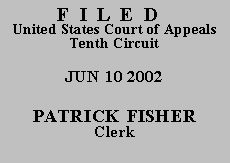

| ALI MEHDIPOUR, |
|
Mr. Mehdipour was convicted in Oklahoma County District Court on drug charges and sentenced to 30 years imprisonment in July of 1999. R. Doc. 1. In June of 1999, Mr. Mehdipour filed a notice of intent to appeal. Because he wished to proceed on appeal pro se and because he initially filed his application to proceed pro se in the wrong county, his appeal was stayed by the Oklahoma Court of Criminal Appeals ("OCCA") until December of 2000. The appeal was not fully briefed until April 24, 2001. Mr. Mehdipour informs this court in his Motion in Support of Petition for Writ of Habeas Corpus that the OCCA issued a summary opinion denying his direct appeal on October 3, 2001.
Prior to that, on March 9, 2001, Mr. Mehdipour filed his federal habeas petition. On May 31, 2001, the magistrate judge filed its Report and Recommendation concluding that Mr. Mehdipour's petition should be dismissed without prejudice for failure to exhaust state remedies. R. Doc. 14. On July 24, 2001, the district court adopted the magistrate judge's Report and Recommendation and dismissed Mr. Mehdipour's petition without prejudice. R. Doc. 19.
A state prisoner bringing a federal habeas petition must show that he has exhausted the remedies available in the courts of the State. 28 U.S.C. § 2254(b)(1)(A). The exhaustion requirement is satisfied if the federal issue has been fairly presented to the highest state court, either by direct review of the conviction or in a post-conviction attack. Dever v. Kansas State Penitentiary, 36 F.3d 1531, 1534 (10th Cir. 1994). The petitioner bears the burden of showing satisfaction of the exhaustion requirement. Hernandez v. Starbuck, 69 F.3d 1089, 1092 (10th Cir. 1995).
To determine whether Mr. Mehdipour is entitled to a COA when the district court has denied a habeas petition on procedural grounds, we examine whether he has shown "that jurists of reason would find it debatable whether the petition states a valid claim of the denial of a constitutional right, and that jurists of reason would find it debatable whether the district court was correct in its procedural ruling." Slack v. McDaniel, 529 U.S. 473, 478 (2000). In his appeal, Mr. Mehdipour asserts that he has, in fact, exhausted his state remedies, the OCCA having denied his direct appeal. While this may be the case, it does not undermine the soundness of the district court's dismissal of his cases because at the time the court dismissed the claim, he had yet to exhaust state remedies.
Mr. Mehdipour contends that he did not have to exhaust his state court remedies prior to the filing of his petition for habeas in the district court because: (1) the state trial court judge refused to recuse, (2) he is actually innocent, and (3) he has been denied a fast and speedy appeal. Aplt. Br. at 1.
Refusal by the state court judge to recuse does not excuse Mr. Mehdipour's duty to exhaust state remedies prior to filing a habeas petition in federal court. Actual innocence is evidence that a fundamental miscarriage of justice will result if a federal court fails to consider a claim that was procedurally defaulted, and is not applicable in this case. Finally, for substantially the same reasons given by the magistrate judge and the district court, we find that Mr. Mehdipour's direct appeal was not unconstitutionally delayed.
Given that his state appeal process is now complete and his state remedies, therefore, exhausted, Mr. Mehdipour may file a new habeas corpus action raising all of his claims. Doing so requires the filing of a new action, however. Mr. Mehdipour should also be mindful of the statute of limitations for federal habeas petitions. See 28 U.S.C. § 2244(d).
We DENY Mr. Mehdipour's request for a COA and DISMISS this appeal.
Entered for the Court
Paul J. Kelly, Jr.
Circuit Judge
*. This order and judgment is not binding precedent, except under the doctrines of law of the case, res judicata, and collateral estoppel. This court generally disfavors the citation of orders and judgments; nevertheless, an order and judgment may be cited under the terms and conditions of 10th Cir. R. 36.3.
**. After examining the briefs and the appellate record, this three-judge panel has determined unanimously that oral argument would not be of material assistance in the determination of this appeal. See Fed. R. App. P. 34(a); 10th Cir. R. 34.1(G). The cause is therefore ordered submitted without oral argument.